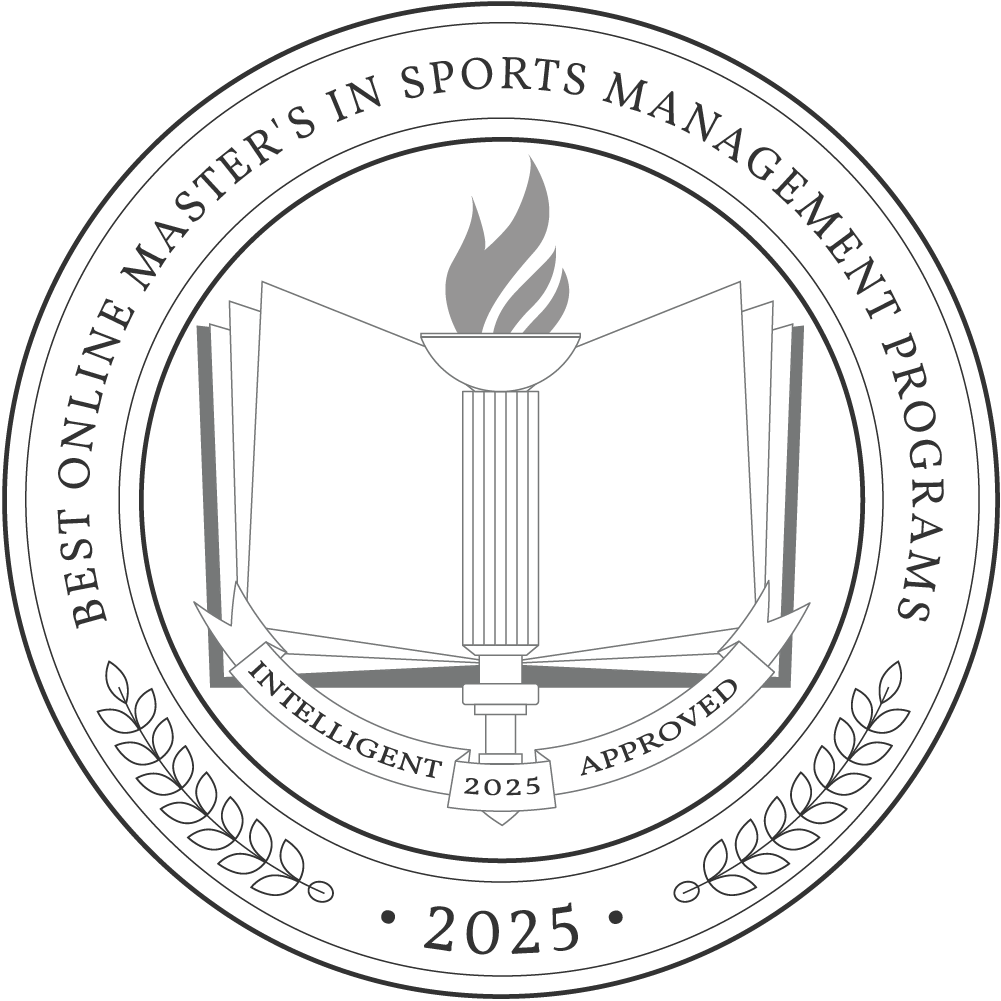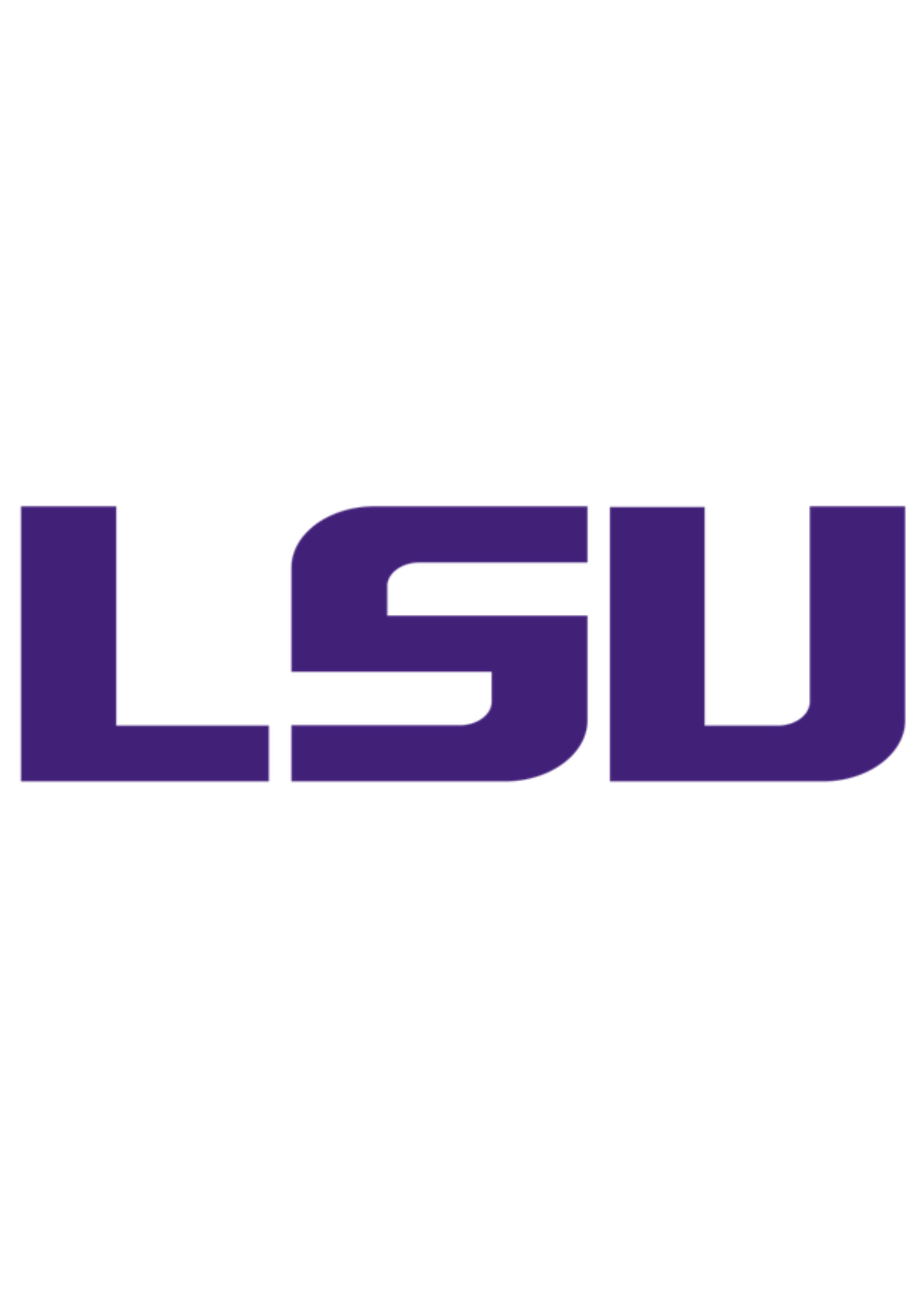How to Choose an Online Master’s in Sports Management Program
Choose your area of study
Defining your goals in terms of what you want to learn and what kind of jobs you want to be eligible for will help focus your search on appropriate schools and programs. Sports management is a broad field encompassing business, law, leadership and management, marketing, event planning, and more. If a specific area interests you, seek out programs that offer elective courses or a concentration in that area.
“Develop a list of personalized parameters to help you narrow down graduate program options,” Villagomez suggests. “As you’re gathering information, consider which programs align with your needs and priorities at this stage in your life.”
There are several different types of sports management master’s degrees available, including a Master of Science (MS), Master of Arts (MA), and Master of Business Administration (MBA) with a concentration in sports management. Each type of degree offers a different theoretical and practical approach to the study of sports management. You should choose the type of degree than best aligns with your career goals — for example, an MS program is an excellent fit for those who want to train athletes, while an MBA makes sense for aspiring sports agents.
This is also a good time for students to reflect on their individual needs, including whether they prefer full-time or part-time enrollment or any kind of in-person experiential learning. You should also think about whether you prefer asynchronous or synchronous courses (asynchronous courses can be completed at your own pace, while synchronous courses involve remotely attending lectures and completing assignments at the same time as other students). Setting these parameters will help narrow your search to programs that meet your needs.
Research schools and programs
You should only apply to institutions that have been approved by a DOE-recognized regional accrediting organization, such as the New England Commission of Higher Education or Northwest Commission on Colleges and Universities. These organizations evaluate schools to ensure they provide students with a high-quality education. Those who attend a school that isn’t regionally accredited may be unable to access financial aid or transfer credits to another institution if needed.
Ideally, your program will also be accredited by the Commission on Sport Management Accreditation (COSMA). This organization has particularly high standards for sports management education.
Create a list of questions to get answered as you conduct your research, including:
- What is the interaction level between online students with faculty and other students?
- What are the program’s core courses? Are there electives or concentrations available?
- Are courses delivered synchronously or asynchronously?
- What internship opportunities are available?
- What kind of support services are available to online students, such as technical support, tutoring, academic and career advising, and counseling?
- Who are the faculty, and what are their credentials?
Most schools will publish some or all of this information on their websites. Students can also learn more about programs by contacting the department or admissions office. For online programs, find out if there are virtual open houses or information sessions so you can speak to students, faculty, and other program representatives. Many schools and programs have social media accounts where prospective students can also get more information.
Prepare for tests and applications
Each school has their own set of application requirements and deadlines. Find out from the school’s admissions office what the application processes are, including any eligibility criteria. For a master’s in sports management, this may include a bachelor’s degree in a related field of study, a minimum undergraduate GPA, relevant undergraduate coursework, or professional experience in the field.
“Colleges are interested in admitting students who can demonstrate their potential to succeed, overcome challenges, and handle academically rigorous classes,” says Villagomez. “I recommend students meet with their school counselors to receive guidance on which coursework can best prepare them to become competitive candidates.”
In terms of application materials, each school sets its own requirements. A typical master’s application includes the following:
- Completed application and required fees
- Official transcripts from all undergraduate institutions attended
- Letters of recommendation from current or former professors, work supervisors, or colleagues
- A personal statement or essay detailing interest in the program and why you’d be a good fit
- Resume/CV highlighting relevant professional and educational experience
- GRE or GMAT scores
Select your program
As you research various programs, eliminate those that don’t meet your needs in terms of curriculum, cost, or structure. “Once students have clarity on what types of programs they’re seeking, they can develop a list of custom filters to narrow down options,” Villagomez recommends. “Some additional examples of filters include duration of the program, faculty reputation and ranking, and professional development opportunities offered.” Apply to any schools that do align with your needs and interests. There’s no right or wrong number of programs to apply to, but keep in mind that most schools charge application fees, which can quickly add up.
Before making your final decision, review your needs and goals again. Do you plan to attend school full-time or part-time? Do you want your program to be as online as possible, or are you fine with a hybrid program that has a fair amount of in-person requirements? Some programs offer asynchronous courses, which can be completed at your own pace, while others only offer synchronous courses, which involve remotely attending lectures and completing assignments at the same time as other students — which of these two online learning formats do you prefer? Your school should accommodate your scheduling needs and learning preferences.
Determine how you’ll pay for your degree
There are many different ways to pay for an online master’s in sports management. Students should connect with a financial aid counselor to get an accurate overall cost of the program, including tuition and school fees, as well as learn more about financial aid options.
Filling out the Free Application for Federal Student Aid (FAFSA) will help schools determine what kind of need-based aid, such as loans, grants, work-study, and scholarships, students are eligible for. Schools and external organizations may also offer merit-based aid like grants, scholarships, and fellowships to high-performing students.
If students will be working while enrolled in a program, they should check with their employer about tuition assistance benefits. Likewise, active-duty service members and veterans can inquire with schools about GI Bill benefits and military tuition discounts.
What Can You Expect from an Online Master’s in Sports Management Program?
Depending on the type of degree, students will be expected to earn 30-40 credits for their master’s in sports management.
The curriculum for a sports management degree is typically built around core coursework in specific areas, such as:
- Business management. The basics of business management, human resources management, operations management, and financial management are always a focus.
- Marketing strategy. This course covers concepts such as market research, promotion, pricing, and product development.
- Sports administration. The different facets of sports administration include facility management, human resources management, and event management.
- Communication theory. Students concentrate on the many dissimilar aspects of sports administration and the best ways of managing sports organizations.
Besides this general core coursework, many programs provide a variety of specializations that allow students to focus on a specific area of sports management, such as sports ethics, sports finance, or sports law.
These programs often require an internship, providing firsthand experience and networking with others in the field.
Potential courses you’ll take to earn your online master’s in sports management degree
- Sports Law, Contracts, and Negotiations. An in-depth analysis of ethical and legal issues in professional sports presents the student with a variety of issues to explore, including labor law, antitrust exemption, free agency, arbitration, athlete representation, collective bargaining, and salary cap administration.
- Sports Sales, Sponsorship, and Revenue Development. This study of strategies used to sell and generate revenue in the sports business cycle covers sales, sponsor solicitation, licensing rights, new business development, sales proposal development, merchandising, endorsements, and corporate partnerships.
- Strategic Sports Marketing. This course discusses marketing and communication techniques, concepts, issues, and methods related to sports organizations. The ultimate goal is to instill the student with a strategic, technical, and conceptual understanding of sports communication and marketing.
- The Business of Global Sporting Events. Students learn the business aspects of hosting major sporting events like the Olympics or World Cup. Competition existing in the global events industry is covered. An understanding is acquired of the practical application of managerial, organizational, and educational leadership.
What Can You Do With an Online Master’s in Sports Management?
Career outlook
This field offers promising career prospects, driven by the global growth of the sports industry. Many sports management occupations are growing quickly, and some provide particularly high salaries.
Earning a master’s degree in sports management opens up a variety of opportunities. With a deep understanding of management principles tailored to the sports landscape, graduates can pursue diverse roles that contribute to the success of teams, events, and organizations. From overseeing athletic programs to orchestrating sports marketing campaigns, the skill set acquired through this advanced degree equips professionals to thrive in the multifaceted world of sports. Here’s a glimpse of potential career paths for those holding a master’s in sports management:
- Advertising, promotions, or marketing manager — Conduct market research, plan advertising and promotional campaigns, and supervise marketing staff.
- Median annual salary: $138,730
- Projected employment growth (through 2032): 6%
- New job openings projected: 34,000 annually
- Administrative services or facilities manager — Plan, coordinate, and supervise activities for an organization or facility, such as a sports team or venue.
- Median annual salary: $101,870
- Projected employment growth (through 2032): 5%
- New job openings projected: 31,400 annually
- Coach or scout — Evaluate athletes, plan practices and conditioning programs, and make strategic decisions during competitions.
- Median annual salary: $44,890
- Projected employment growth (through 2032): 9%
- New job openings projected: 38,400 annually
Online Master’s Degree in Sports Management Frequently Asked Questions
How do I apply to an online master’s in sports management degree program?
Start by confirming application requirements, procedures, and deadlines with the schools you’re considering. This information is typically available on the school’s website, or you can speak to an admissions counselor.
Maintaining a spreadsheet or checklist of requirements and due dates can be helpful. Most schools accept applications and supporting materials through their website. It’s common for schools to request official transcripts sent directly from other schools you’ve previously attended.
Depending on the program, they may accept applications on a rolling basis or have a hard deadline. Failure to submit applications and other required materials by deadlines can impact a student’s ability to enroll in their desired start term.
How much does an online master’s in sports management degree cost?
On average, the full cost of a master’s degree is $59,684, according to EducationData.org. However, there are many factors that influence how much a student spends on their master’s degree. For the most accurate information about program costs, students should always speak to a financial aid representative at their school.
How long does it take to earn an online master’s in sports management degree?
The length of time to earn a master’s degree in sports management online varies depending on the institution. Most programs are geared toward two years.
The number of credits a student takes each semester will determine the time of completion. Those enrolled full-time with 12 to 15 credits each semester would usually finish in 18 months. A light load of credits, nine to 12, might necessitate 24 months to complete. Some schools offer accelerated degrees online, requiring more credits per term than traditional programs. A lot of sports management programs ask students to fulfill an internship. The length of an internship varies and could increase the amount of time it takes to receive a degree.
Is an online master's in sports management worth it?
Pursuing an online master’s in sports management is worth it for several reasons. Online programs offer flexibility, allowing individuals to balance their studies with professional and personal commitments. This flexibility is particularly beneficial for those already working in the field of sports, where schedules can be unpredictable. Moreover, online degrees provide access to top-notch education without geographical constraints, allowing students to learn from renowned institutions and industry experts.
The digital format fosters a collaborative and diverse learning environment. Students are able to interact with peers from various locations, sharing insights and expanding their networks. Additionally, online master’s programs often incorporate real-world case studies and practical experiences, preparing graduates with the skills needed for leadership roles in sports management.
The convenience, accessibility, and quality of education make an online master’s in sports management a valuable investment for those seeking to advance their careers in this competitive and dynamic industry.
Read More about Online Master’s in Sports Management Degrees




















